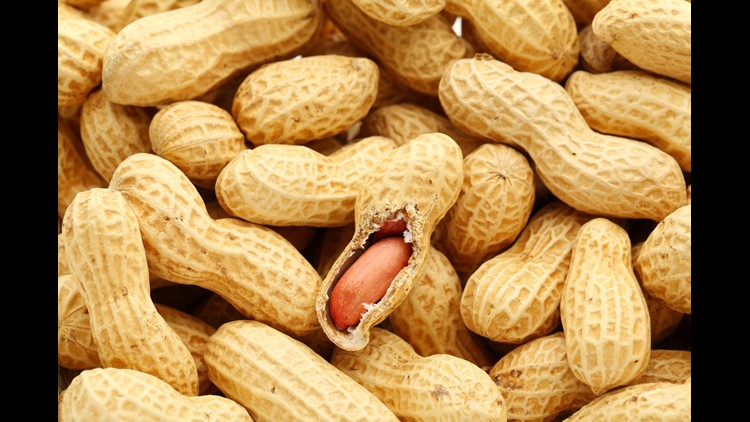New research suggests the method to stopping a lifelong peanut allergy is to, well, feed your baby peanut foods.
The National Institute of Allergy and Infectious Diseases, part of the federal government's National Institute of Health, issued new guidelines to health care providers and parents Thursday. They say peanut allergies can be curbed by introducing children to foods that contain the legume as young as early infancy. The new rules follow scientific research that showed introducing foods with peanuts during infancy can prevent future allergies.
The NIAID said peanut allergies are a growing health problem with no treatment or cure. It usually develops in childhood and remains into the adult years. In a 2010 survey, about 2 percent of U.S. children had a peanut allergy, which was more than four times the estimate in 1999.
The decision to rework the guidelines came after a trial of more than 600 infants found that regular peanut consumption until age 5 reduced the likelihood of an allergy by 81 percent.
"The (Learning Early About Peanut Allergy) study clearly showed that introduction of peanut early in life significantly lowered the risk of developing peanut allergy by age 5," said Daniel Rotrosen, the director o NIAID's Division of Allergy, Immunology and Transplantation.
Dr. Anthony Fauci, NIAID's director, said people operated under the "incorrect assumption" that they should forbid their children from eating peanuts because they may be an allergy risk.
"As it turns out, counter-intuitively, that works against the child," he said.
Fauci said the new guidelines will "save lives and lower health care costs."
"We expect that widespread implementation of these guidelines by health care providers will prevent the development of peanut allergy in many susceptible children and ultimately reduce the prevalence of peanut allergy in the United States," he said.
The new guidelines are being embraced by the American Academy of Pediatrics, which put out recommendations 17 years ago that some families should avoid feeding children peanuts until they turn 3.
Dr. Scott Sicherer, a professor of pediatrics at Mount Sinai Hospital in New York City, represented AAP on the guidelines and helped write them. He said the 3-year rule was dropped in 2008 and was replaced by the guidance that feeding children peanut products early on is OK.
He encourages people to forget the old 3-year recommendation and follow the new guidelines. He asks parents to consult a doctor when picking a peanut food to feed their children and to be aware of choking.
The guidelines are based on whether a child has eczema or an egg allergy, good indicators of peanut allergies. Fauci suggests parents check with their doctor before moving forward with peanut foods.
The guidelines are as follows:
- For infants deemed a high risk for developing a peanut allergy, based on eczema or egg allergies, experts suggest feeding them food with peanuts as early as four to six months old.
- Infants with mild to moderate eczema should be introduced to peanuts at six months old.
- For babies without eczema or egg allergies, researchers say parents can start giving them peanut foods when they see fit.
Follow Sean Rossman on Twitter: @SeanRossman



